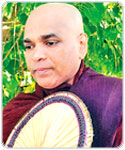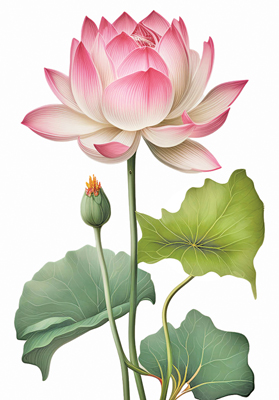The Buddha is not Alive –
But, His Teachings are Alive
 Dr. Most Venerable Dr. Most Venerable
Mirisse Dhammika Nayaka Thera
In the final hours, the Buddha was lying in his berth and monks were standing
around Him. When the Buddha’s chief attendant Venerable Ananda asked Him. “O’
Venerable Sir, who would succeed you as our Teacher”, the Buddha said “Ananda,
the Dhamma that was realized and taught by me succeeds and becomes your
Teacher”. This was an answer for any one who had any doubts about the guidance
into the path.
The dhamma is universal and prevails over anything and anywhere as the absolute
truth. It can be categorised into morality, concentration and wisdom. Morality
consolidates right application of word, action and livelihood. A kind word can
preserve the world. The Buddha has shown this explicitly on many occasions by
appreciating non-violence and peace as opposed to actions that are harmful and
fearful to others. Likewise, an evil word can destroy the entire world.The
Dhammapada quotes “athanang upamang kathava” meaning “take your own self as an
example”. In brief, how would one feel if one has to be in the shoes of another?
If it is a feeling of joy according to socio-cultural norms, then it is a
socially accepted right action. If it is hartful or results in unwholesome
feelings, avoiding it would be saintly. Right livelihood too is part of
morality. The Buddha who taught non-violence, clearly explains that another
being should not be taken prey even for one’s own survival.
 Concentration encompasses right determination and right effort required to avoid
unwholesome thoughts, words and actions. It enhances self-awareness, permitting
the mind to focus on wholesome words and deeds. Concentration encompasses right determination and right effort required to avoid
unwholesome thoughts, words and actions. It enhances self-awareness, permitting
the mind to focus on wholesome words and deeds.
The Dhamma that exists in the universe is timeless. By following the path of the
Dhamma, one will be able to find permanent peace. Thus, the philosophy of the
Dhamma places trust in mankind. Buddhism emphasizes the fact that one is the
master of oneself and not any divine saviour. Though a lot of blind faith is
placed in this external saviour, it is obvious that everything is a result of
the power of the human mind which is explained explicitly in the Dhamma. It
shows that one’s saviour is oneself. The right path of the Dhamma is subdued in
the passage of time and thus, the Buddha’s appear from time to time to retrieve
the path. Those who are determined and able to comprehend the power of self,
would tread the path and find deliverance.
Do You See What Prince Siddhartha Has Seen?
As usual, Prince Siddhartha was on his way to the park in his chauffeur driven
royal carriage. Suddenly, he saw an old, decrepit, person with an uncomfortable
walk. The wagon came to a half by order of the Prince. He asked his chauffeur
“who is this”? “Your Royal Highness, he is an old man”. It precipitated some
deep thoughts in the mind of the Prince and he explored it further. He was told
that everyone gets old and suffering is inevitable unless death intervenes
untimely. The prince had never seen real human misery thus far. Siddhartha’s
curiosity was unending and he asked the chauffeur “tell me whether I am getting
old too”! The chauffeur answered “Sir, not only you but also your father, wife,
me and any one who is born in this world will become old. Then, suffering is
inevitable”.
Siddhartha began to think about the question of aging. This thinking enabled Him
to achieve the Buddhahood. Let us reflect on this further?
Now, let me explain how I think about it. I would go to a mirror and take a hard
look at myself. At the same moment, I draw a mental picture of my grandfather or
grandmother or the faces of my parents. In the course of a few decades, I look
similar to them. I also experience the pain and suffering that they experience.
Due to weakening sight, I am unable to see my foot steps and fall down. I am
unable to hold steadfast and fall down due to weakness in my limbs. When my
hearing is diminished, I have to ask things repeatedly. It makes others
impatient and angry. Then, I hear their angry remarks. Before long I will be
powerless and consumed by death. Again, I look at my face in the mirror. I am
young, I am young ! However, I would never forget aging.
Let us think along these lines and respect the elderly. Let us share love,
tenderness and kindness with them. An elder may feel more joyous with just a
kind word than with a thousands dollars. When young sons and daughters leave
home after marriage, the parents experience loneliness, boredom and emptiness as
they get older. These feelings can be alleviated if the offspring take good care
of them. An extension of these thoughts of kindness to all those who are in
their golden years would make a tremendous difference in their worlds. The human
mind is rich in such kind thoughts. |